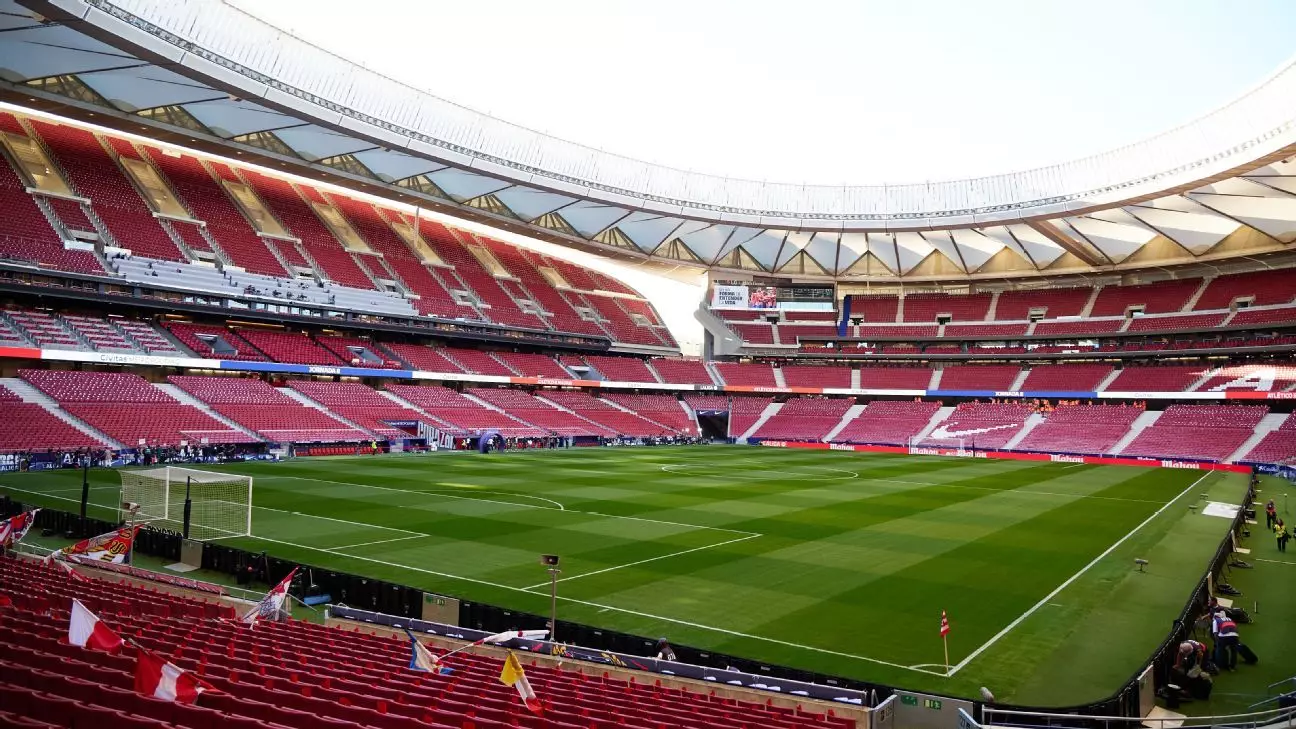The recent agreement between Saudi Arabia and Atlético Madrid marks a significant move in the world of sports branding, reflecting the broader ambitions of the oil-rich kingdom. By securing naming rights for the Metropolitano stadium, now dubbed the Riyadh Air Metropolitano, Saudi Arabia is not just promoting a company; it is solidifying its presence on the global sports stage.
The journey of the Metropolitano stadium illustrates the rapidly changing affiliations and sponsorships in professional sports. Originally named after the Chinese real estate company Wanda when it opened in 2017, the venue experienced a rebranding just five years later to Civitas Metropolitano, affiliated with a local real estate developer. The current partnership with Riyadh Air signifies a shift towards greater internationalization, as countries like Saudi Arabia seek to enhance their visibility through foreign sports teams. Each renaming points not only to financial agreements but also to a deeper association with an evolving sports culture that views investments in international partnerships as essential pathways to global influence.
While Atlético Madrid enjoys the financial influx from such deals, this latest arrangement also brings a wave of scrutiny. The unconditional cash infusion raises questions about the ethical implications behind the sponsorship, particularly considering Saudi Arabia’s ongoing human rights challenges, which only add complexity to the dynamics of sports diplomacy.
The financial stakes of this agreement cannot be overlooked. Atlético Madrid reportedly secured a staggering €40 million ($44 million) annually for their shirt sponsorship from 2023 to 2027. Though the specifics of the newly announced naming rights deal were not disclosed, it is cited to be the most significant sponsorship deal in Atlético’s history, reinforcing Riyadh Air as a crucial player in the club’s financial ecosystem. It is notable that while sponsorship deals often herald a focus on profitability, they also beckon questions regarding the influence of corporate interests in sports and the potential ramifications of that influence.
This aggressive approach to sponsorship is part of Saudi Arabia’s Vision 2030 initiative aimed at diversifying the kingdom’s economy beyond oil, while also seeking to modernize societal norms through global cultural integration. The role sports play in this overall strategy cannot be overstated, as they aid in projecting a more progressive image of the country internationally.
What looms large over this deal is the interplay between sports and politics. Hosting the 2034 World Cup places Saudi Arabia in a prominent global spotlight, a possibility bolstered by the current absence of rival bids. This FIFA event is critical for the country’s aspirations to use sports as a tool for international diplomacy and national pride. Atlético Madrid’s CEO, Miguel Ángel Gil Marin, being a vital figure in the European Club Association (ECA), exemplifies how interconnected sports governance can facilitate strategic advantages.
Yet, this intertwining of sport and politics often runs the risk of overshadowing the spirit of the game itself. The potential for human rights discussions to surface, especially concerning issues faced by migrant workers in Saudi Arabia, poses a challenge for clubs and federations connected to the region. Increased scrutiny from labor organizations and global observers could lead to uncomfortable conversations regarding the ethics of accepting sponsorship deals from sources linked to controversial practices.
As the landscape of professional sports continues to evolve, Atlético Madrid’s partnership with Riyadh Air serves as a microcosm of broader global trends. Clubs no longer operate in isolation; they are part of a larger framework influenced by international politics, cultural exchange, and economic imperatives. The forthcoming installation of the new stadium name is imminent, but the implications of this deal will likely reverberate beyond mere signage.
Saudi Arabia’s investment in Atlético Madrid is a calculated move with both financial and diplomatic ramifications. By aligning itself with a globally recognized football club, Saudi Arabia is not merely cultivating a brand presence but is also engaging in a nuanced game of international reputation management, one that will unfold in the years leading up to the 2034 World Cup and beyond.

